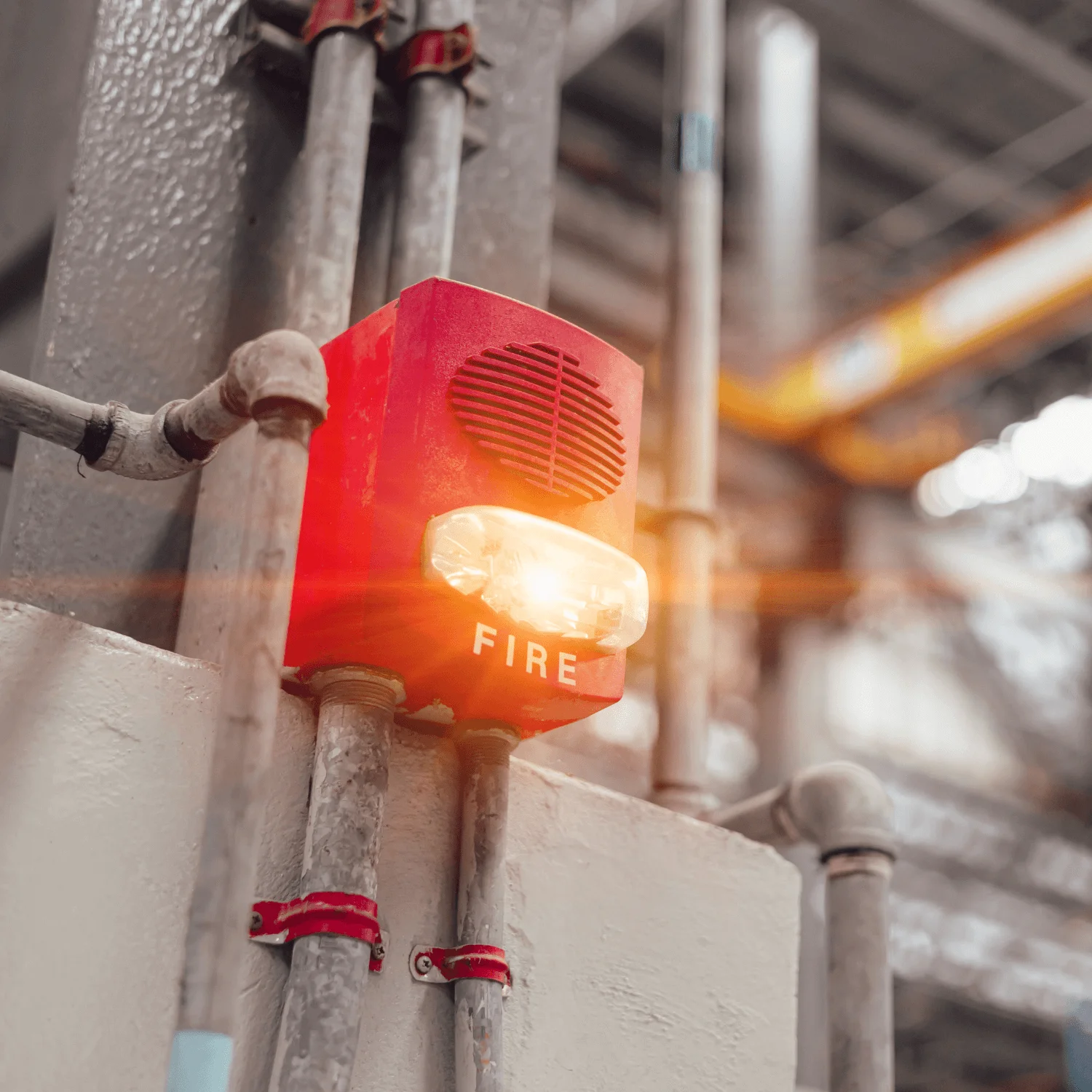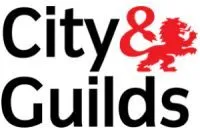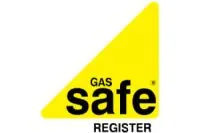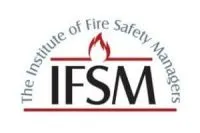Safeguarding South London with Expert Fire Alarm Solutions
Ensure your safety with a London Safety Certificate. Contact us today for top-rated fire alarm installations and maintenance by certified professionals. Experience service that meets your needs promptly and affordably.
ONLY £180
* All inclusive (No hidden Cost)
* Limited time offer upto 2 weeks from now

Comprehensive Fire Alarm Systems for South London – London Safety Certificate
If you’re seeking a fire alarm system in South London, you must choose the right type based on your needs. Options range from ionisation and photoelectric sensors for smoke detection to comprehensive hybrid systems that include heat sensors for optimal safety. With legal regulations requiring smoke alarms on every floor in residential settings and more complex systems in commercial buildings, ensuring compliance is essential. Installation should be carried out by certified technicians who can ensure your system is integrated correctly and meets all safety standards. This process safeguards your property and enhances your readiness to handle emergencies, offering further insights into advanced safety measures and technologies.
London Safety Certificate specialises in providing top-tier fire alarm systems across South London, ensuring residential and commercial properties are equipped with the latest fire safety technology. With over a decade of expertise, the business prides itself on its team of fully accredited and certified technicians who offer quick and reliable installation and maintenance services. They are dedicated to upholding the highest safety and efficiency standards, all while maintaining competitive pricing and transparency with no hidden fees. Renowned for their responsiveness and trustworthiness, they have earned a strong reputation, reflected in their consistent 5-star client reviews. Whether you need a new fire alarm system installed or your current system maintained, the London Safety Certificate is a premier choice for all your fire safety needs in South London.
Fire Alarm Installation Price
£180
✔ IFSM Approved Contractor
✔ Accordance with BS5389
✔ Professional Installers
✔ 10 Years Experience

HOW CAN WE HELP
At London Safety Certificate, we specialise in providing top-tier fire alarm solutions across South London, ensuring the safety and compliance of residential and commercial properties. Our commitment to reliability, responsiveness, and trustworthiness means that each client receives personalised attention and expert service. Whether you’re looking to install a new fire alarm system or require maintenance and inspection of your existing setup, our team of certified professionals is equipped to efficiently handle all your fire safety needs. Trust us to enhance your premises’ safety with the latest fire alarm technology and industry-leading expertise.

WHY US
When it comes to ensuring the safety of your premises in South London, choosing a London Safety Certificate for your fire alarm needs is a decision that combines reliability, expertise, and value. With over a decade of specialised experience in fire alarm installation and maintenance, our team of fully accredited and certified technicians is committed to delivering responsive and trustworthy service. We prioritise your safety without compromising on quality or efficiency, offering highly competitive pricing and the assurance of no unexpected charges. Our reputation is upheld by a track of high ratings and positive reviews, reflecting our dedication to excellence and client satisfaction. Trust London Safety Certificate to provide top-tier fire alarm solutions that keep you, your property, and your occupants safe.
Understanding Fire Alarm Basics
Fire alarms, essential for safety, operate on simple principles that are crucial to understand. As you delve into the world of fire alarm technology, it’s imperative to recognise not just the mechanics but also the strategic implementation of these systems in ensuring residential safety.
Firstly, familiarise yourself with various smoke detector types. Ionisation and photoelectric detectors serve distinct functions. Ionisation detectors are quicker at catching flaming fires, while photoelectric detectors excel at identifying smouldering ones. Both types are integral to comprehensive fire prevention strategies and align with residential safety standards.
Proper sensor placement guidelines are crucial. The ideal placement of detectors ensures maximum efficiency and rapid detection, reducing emergency response time. Strategically place smoke detectors on every level of your home, including the basement and near sleeping areas.
Moreover, regular system maintenance tips should be stressed more. Monthly alarm testing procedures are recommended to ensure functionality. Batteries should be replaced annually or as needed, and smoke detectors should be replaced every ten years.
Engage with alarm monitoring services that provide real-time alerts and swift emergency response plans. These services are pivotal in escalating fire department alerts and ensuring timely intervention.
Types of fire alarm systems supplied by London Safety Certificate
At London Safety Certificate, you’ll find a comprehensive range of fire alarm systems designed to meet the specific needs of any residential or commercial property. These systems integrate advanced technologies such as wireless connectivity and smart system integration, ensuring you’re equipped with top-tier safety mechanisms.
Firstly, wireless technology allows for seamless installation without disrupting existing structures. This method expedites the setup process and minimises maintenance challenges. You’ll appreciate the robustness of our wireless systems, which can be monitored remotely, providing you peace of mind that your property is under constant surveillance.
Our offerings include sophisticated smoke detection systems that employ ionisation and photoelectric sensors, enhancing their accuracy and speed. Heat sensors are also integral, designed to detect rapid temperature increases and provide early warnings, minimising potential damage and risk to occupants.
Moreover, the London Safety Certificate strongly emphasises comprehensive alarm monitoring services. These services ensure fire incidents are immediately reported to emergency services, significantly reducing response times.
System integration is streamlined, allowing fire alarms to seamlessly connect with other security systems, including emergency lighting and alarm notification systems.
Additionally, we provide installation training for all our systems, ensuring your team can handle basic troubleshooting and understand the operational protocols. Our maintenance services are thorough, including regular safety audits and product reviews to guarantee that every component functions optimally.
Investing in a fire alarm system from the London Safety Certificate means prioritising safety with sophisticated, reliable technology tailored to your needs.
Choosing the Right Fire Alarm
Selecting the appropriate fire alarm system for your property requires careful consideration of several key factors to ensure optimal protection and compliance with safety regulations. You’ll need to weigh various aspects, such as the specific fire alarm types suitable for your premises, including smoke and carbon monoxide detectors, and the benefits of integrating wireless systems for enhanced flexibility.
When examining fire alarm types, delve into the differences between conventional and addressable systems. Conventional systems are cost-effective for smaller facilities, whereas addressable ones suit larger environments with more complex layouts due to their pinpoint identification capabilities. Smoke detector options also play a critical role; you must choose between ionisation, photoelectric, or dual-sensor detectors based on the likely nature of a fire in your space.
Consider incorporating carbon monoxide detectors into your system, especially in areas where gas appliances are used. This integration enhances safety by ensuring early detection of this deadly gas.
Maintenance requirements and alarm testing procedures are pivotal for the longevity and reliability of your fire alarm system. Regular testing ensures all components function as intended, vital for safety assurance. Below is a table highlighting crucial maintenance tasks and their recommended frequency:
Lastly, pay attention to the need for a robust emergency plan that interfaces seamlessly with your fire alarm system, ensuring swift and coordinated responses in crises.
Alarm Installation Process Overview
Once you’ve selected the appropriate fire alarm system for your property, the next crucial step is its proper installation. Understanding the installation techniques, tailored to the system types and equipment selection, is fundamental for ensuring optimal functionality and safety.
You’ll begin by determining the specific system type—conventional, addressable, or wireless. Each type requires a unique approach during installation. Conventional systems, for example, are simpler but demand precise wiring to avoid false alarms. More complex addressable systems offer easier troubleshooting and maintenance due to their pinpoint identification of issues.
The installation process starts with a meticulous planning stage. You’ll map out the placement of detectors and alarms, ensuring coverage of all critical areas while adhering to established safety standards. The equipment selection must also be compatible with the building’s layout and the specific risks it faces.
Professional qualifications are essential. Our certified technicians should be installed to guarantee the system’s reliability and compliance with safety standards. These professionals will handle the installation timelines efficiently, aiming to minimise disruption without compromising the quality of work.
Post-installation, rigorous testing procedures ensure that every component functions as expected. This phase is crucial and should simulate various scenarios to check the system’s responsiveness and effectiveness.
Maintenance practices and user training follow the installation. Regular checks and updates will extend the life of your fire alarm system, whereas empowering users with operational knowledge and troubleshooting tips ensures they can respond appropriately in an emergency.
Always prioritise ongoing education about your system to maintain a high level of safety.
Book nowDo I need a fire alarm?
As previously discussed, understanding the legal requirements and ensuring your fire alarm system meets compliance standards naturally leads to questioning whether a fire alarm is necessary for your premises in South London. It’s crucial to recognise that both residential regulations and commercial requirements stipulate the need for adequate fire detection systems to ensure safety and compliance.
For residential settings, the law requires smoke alarms on every floor of your home, including where you sleep. In commercial environments, the requirements become more stringent, with comprehensive fire alarm systems necessary to cover all bases from early detection to emergency response facilitation.
Beyond legal compliance, the benefits of installing a fire alarm must be balanced. They provide early detection, which can be life-saving and reduce potential property damage. Efficient fire alarms also interact seamlessly with local fire services, ensuring quick emergency response times, which can significantly mitigate the severity of fire incidents.
Moreover, staying up-to-date with fire detection technology and routine alarm maintenance are essential tips for enhancing emergency preparedness. These systems safeguard lives and have profound insurance implications, potentially lowering premiums due to decreased risks.
Lastly, investing in a fire alarm system supports community awareness programs and promotes a safety culture vital for communal well-being. Here’s a concise overview to guide you:
Legal Requirements and Compliance
Navigating the legal requirements and ensuring compliance are critical steps in installing your fire alarm system in South London. You must familiarise yourself with current fire safety regulations and alarm system standards to ensure that your setup meets legal expectations and also ensures optimal safety.
Firstly, you’ll need to conduct a thorough fire risk assessment. This assessment identifies potential fire hazards and determines the appropriate fire safety measures, including specifying alarm systems that suit your building’s particular characteristics. It’s not just about installing any alarm; it’s about installing the right alarm system tailored to your specific environment.
Once the type of system is determined, adherence to installation guidelines is paramount. These guidelines are designed to promote safety and ensure that the installation complies with legal obligations.
After installation, regular maintenance is required. Maintenance ensures the alarm system functions correctly and complies with ongoing legal standards.
Moreover, the certification process is an integral part of compliance. This process involves periodic reviews and audits by certified professionals who assess and verify the effectiveness and compliance of your fire alarm system. Pay attention to this; certification can be your proof of compliance in case of legal scrutiny.
Additionally, you must integrate your alarm system with established emergency procedures and ensure it’s connected to the necessary notification systems. This integration enhances the responsiveness of emergency services, thereby increasing the safety net during an incident.
Can I install my fire alarm?
It requires a thorough understanding of fire detection technology and adherence to fire safety regulations. So, you should hire a professional company to install your fire alarm in London. Installing a fire alarm system requires adherence to strict British Standards (BS 5839-1 for non-domestic premises and BS 5839-6 for domestic premises) and Building Regulations, which ensure the safety and effectiveness of the system.
Professional installers have the expertise to correctly position and install the alarms, provide necessary certification, and ensure compliance with all regulations. Additionally, they offer regular maintenance and testing services to keep the system in proper working order, guaranteeing reliable protection for your property.
Hiring a certified professional ensures your fire alarm system is installed correctly and functions optimally, providing you with peace of mind and enhanced safety.
Book nowHow the London Safety Certificate Fire Alarms team works
The London Safety Certificate Fire Alarms team operates with precision and expertise, ensuring all installations meet strict safety standards. As you navigate the complexities of fire safety, it’s imperative to understand the meticulous approach this team takes to protect your premises.
Here’s how the team ensures top-tier service:

Comprehensive Safety Audits
The team conducts detailed safety audits to assess the effectiveness of existing fire alarm systems. These audits are crucial in identifying vulnerabilities in your fire safety protocols and ensuring compliance with current regulatory standards.
Book Now
Alarm Installation and Upgrades
Whether you’re installing new smoke detectors or upgrading your entire system to enhance fire prevention, the team uses only the latest technologies. System upgrades are tailored to meet your facility’s specific needs, ensuring optimal performance and adherence to safety norms.
Book Now
Regular Maintenance and Testing
To guarantee functionality during emergencies, regular alarm maintenance and testing are scheduled. This includes routine checks and repairs of all components, from smoke detectors to emergency notification systems, ensuring they operate correctly when needed.
Book NowCosting of Fire Alarm in South London
Investing in a reliable fire alarm system for your South London property involves understanding the costs associated with installation, maintenance, and operation. Initially, fire alarm pricing varies significantly based on the choice of technology and scale of the system.
Installation costs can be substantial, as they cover the physical installation and integration into your existing infrastructure. Supplier comparisons reveal that costs fluctuate depending on the sophistication of the technology used.
Opting for cutting-edge systems might increase initial expenditures but can reduce maintenance expenses over time due to fewer failures and lesser need for replacements. It’s crucial to factor in system upgrades, which future-proof your installation and ensure compliance with evolving safety standards.
Maintenance expenses are another critical aspect. Regular checks and repairs ensure optimal functionality but entail ongoing financial commitment. Service contracts seem like an added expense, but they stabilise maintenance costs, provide a predictable expense schedule, and prevent unexpected hefty fees from emergency repairs.
Moreover, warranty options can mitigate financial risks, covering replacement parts or unexpected service needs. Regulatory fees must also be considered, as compliance with local safety ordinances often involves initial and recurring costs.
Lastly, pay attention to insurance implications. A robust fire alarm system can lower insurance premiums by reducing risk levels and offering long-term savings to offset some upfront costs.
Book nowFire Safety Compliance in London
Fire safety compliance is an indispensable aspect of property management in London, where the density of residential and commercial buildings prioritises effective fire prevention strategies. For any building owner or manager, ensuring that fire alarm systems meet the standards required by the UK’s rigorous regulatory framework is not just a legal duty but a moral imperative. Fire Alarms London specialises in installing, maintaining, and inspecting fire alarm systems, playing a crucial role in safeguarding lives and properties against the devastating impact of fires.
Installing fire alarms must adhere to British Standards (BS 5839), which provide the guidelines for building fire detection and alarm systems. Fire Alarms London ensures that each system is meticulously designed to cover all necessary aspects of detection, from smoke and heat detectors to manual call points. Each installation is tailored to meet the unique needs of each premise, ensuring comprehensive coverage that aligns with the architectural complexity and the specific use of the building. This bespoke approach not only enhances safety but also ensures that the system is unobtrusive and complements the aesthetic values of the property.
Regular maintenance and inspection are critical to fire alarm systems’ continued effectiveness. Fire Alarms London offers a robust service package with regular checks and prompt repairs to ensure every system remains at peak operational readiness. This proactive approach helps to identify potential issues before they escalate into serious problems, thereby reducing the risk of system failure in the event of a fire. Compliance with ongoing fire safety standards is not merely about meeting legal requirements but about fostering a safe environment for occupants and visitors alike, reinforcing the peace of mind from knowing that one’s property is protected against unforeseen fire hazards.
FAQs
When installing fire alarms in historical buildings, consider preservation standards and heritage protection guidelines. Architectural challenges may require creative solutions to make safety measures meet regulations. Trust experts for compliant installation.
Fire alarm systems can be installed in various properties, including industrial, high-rise buildings, retail spaces, office buildings, and educational institutions. To ensure safety, ensure compliance with regulations and hire qualified professionals.
To guarantee your fire alarm system’s efficiency post-installation, conduct routine inspections and test procedures, monitor alarm sensitivity, replace batteries regularly, and practice emergency response drills. These maintenance tasks are crucial for the system’s reliability and effectiveness.
You can enhance home safety by integrating fire alarm systems with other security measures. Incorporate home automation for seamless surveillance. Utilise technology for emergency response and monitoring. Confirm compliance with building codes for thorough security.
Could you confirm compatibility with system requirements when considering fire alarm installation for buildings with unique layouts or structures? Address installation challenges due to building complexity. Adhere to safety regulations for proper placement and functionality of alarms.























